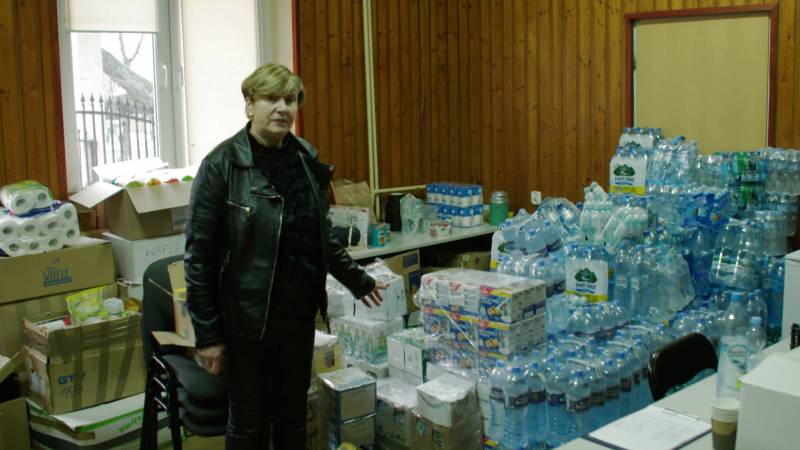Maryla Ancipiuk is happy to show how much things were collected in the barracks of the volunteer fire brigade in Michalowo, half an hour from the border with Belarus. “This is our water supply. This is the most important thing at the border. We meet people in the forest with bottles full of green and brown water, and that of course makes them sick.”
People from all over Poland send help to immigrants. The warehouse is full. Food, gloves, scarves, blankets, and even a box of books in Polish. “We also have a lot of nappies, because there are many children among the migrants. And look here: bottles, porridge, baby formula, baby clothes.”
Government? “We shouldn’t expect anything of that,” the town’s deputy mayor says contemptuously. “They are not helping, they are only working against it. They are imposing all kinds of bans on us. They should act differently.”
setbacks
Michalow is a small municipality in the border region, with a population of about 7,000. The place is special for migrants stranded at the border between Belarus and Poland. Belarusian border guards lead them to Poland, and Polish soldiers are trying with all their might to prevent them from crossing the border. Migrants are being deported unofficially. Applying for asylum is not an option for them. Under international law, this is not allowed, but under Polish law it is now.
Despite all efforts to stop the migrants, the groups were still able to cross the border into Poland. It is impossible to determine their number. They wander for days, sometimes weeks through the vast forests of Podlaskie County. Poland imposed a state of emergency at the border; The three-kilometer zone is a no-go area for journalists and aid workers.
I will never lose a photo
Ancipiuk is allowed to enter the district as a deputy mayor. Tears well up in her eyes as she talks about her daily encounters with migrants. “Here, look at this picture. There you see a little girl in my arms. I gave her some candy. She hugged me and kissed my hand. I will never forget that picture.”







